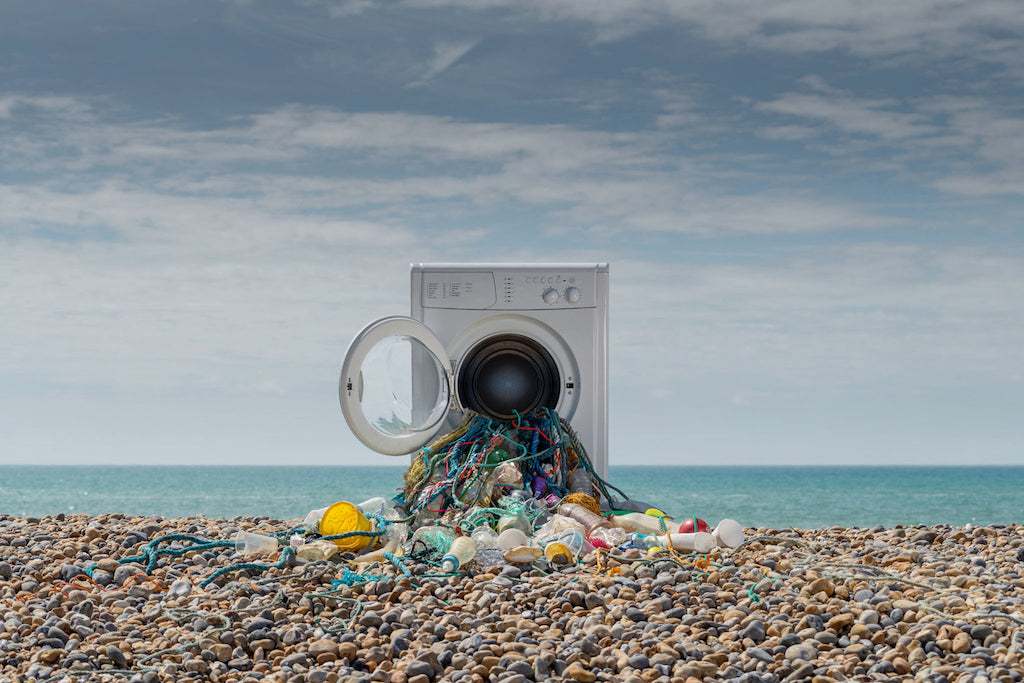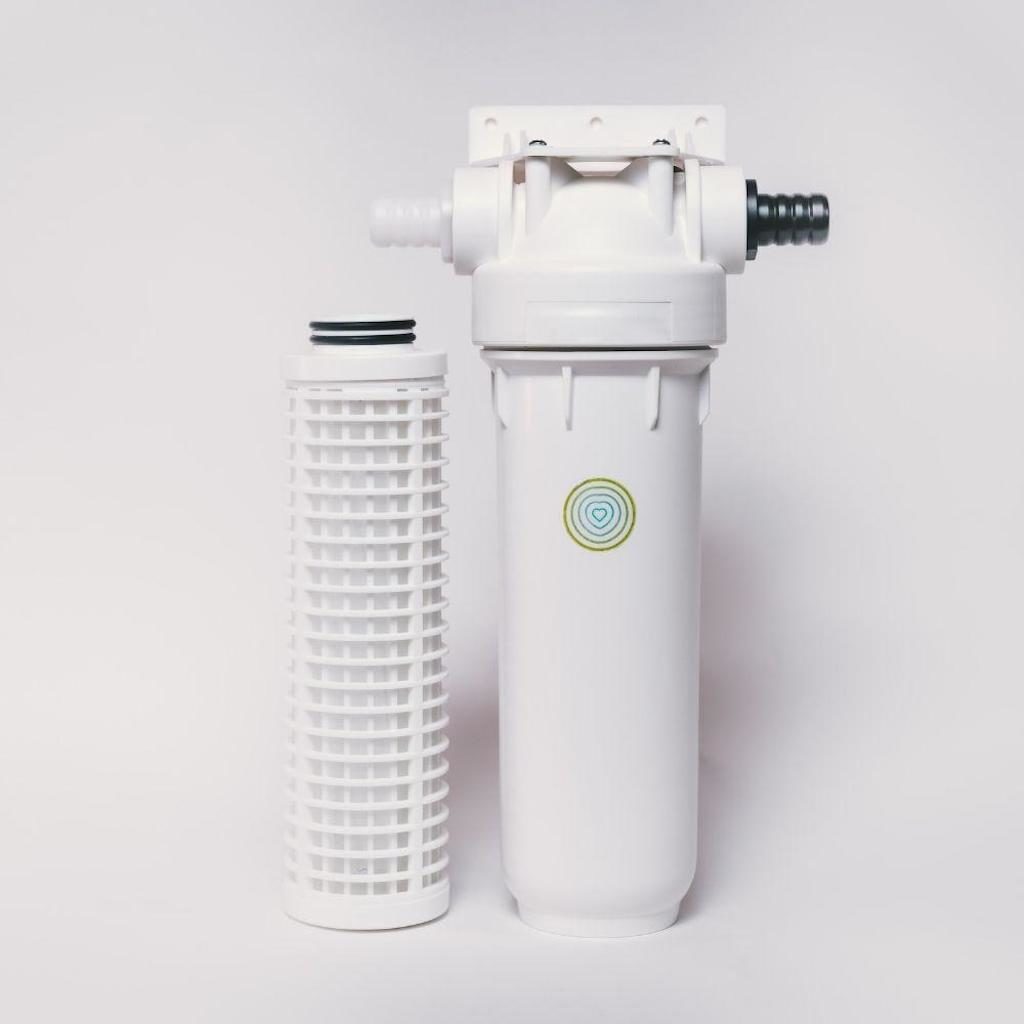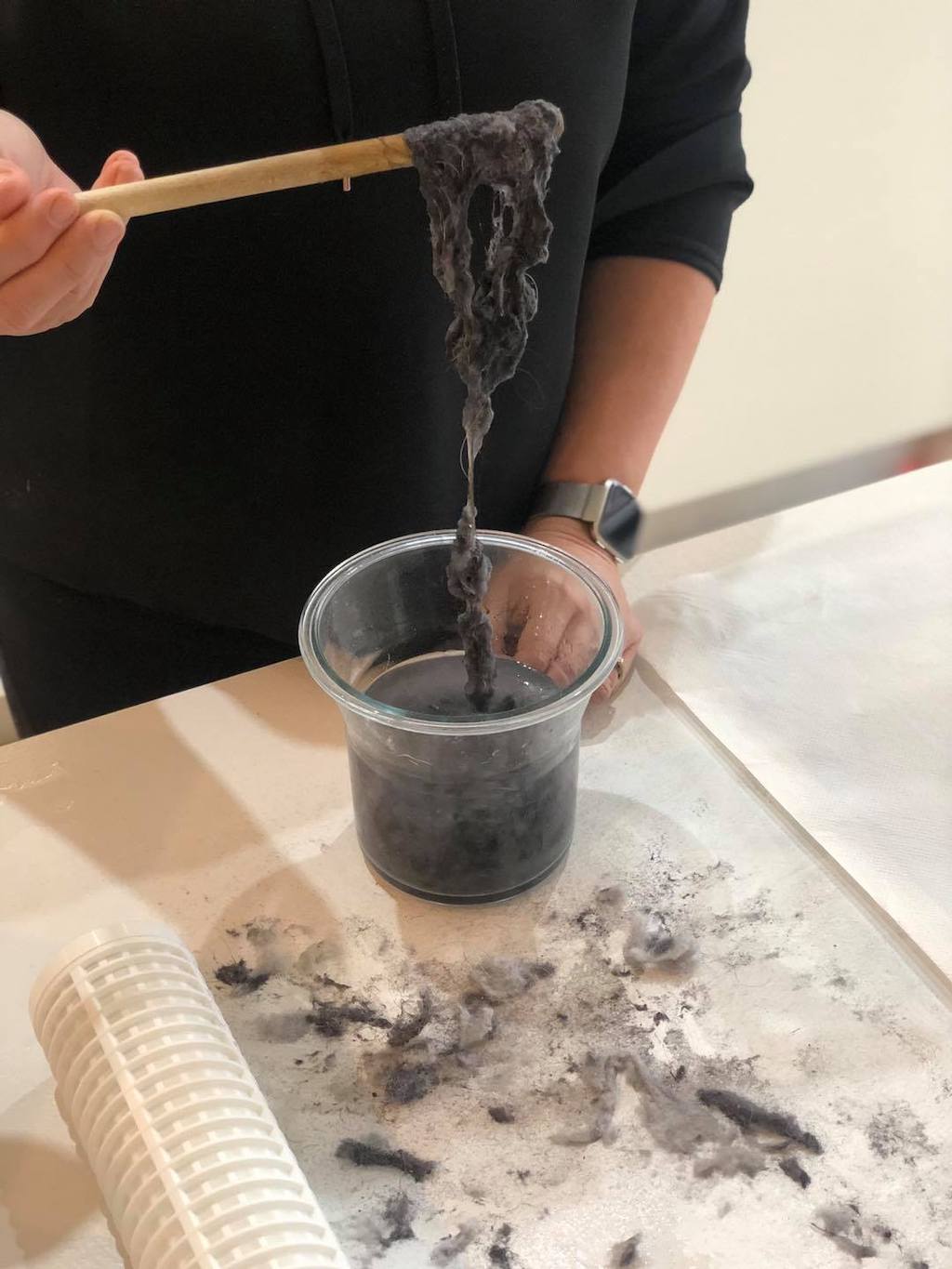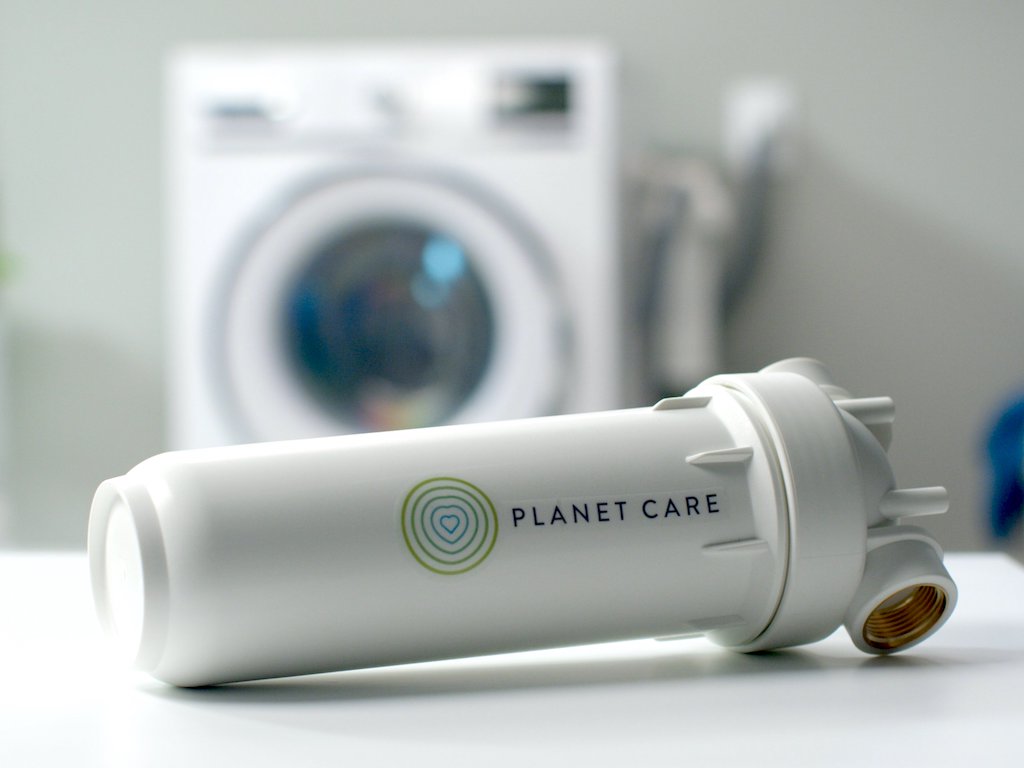PlanetCare: How This Slovenian Startup’s Laundry Machine Filter Is Solving Microplastic Fibre Pollution
4 Mins Read
There is a microplastics crisis. Tiny fragments of plastic – particles smaller than 5 millimetres – can be found almost everywhere, from the ocean, sea spray, marine life and even in our food chain, where we’re unknowingly ingesting thousands of these nano-sized particles on the daily. For many of us, the first culprit that comes to mind are plastic containers, water bottles and drinking straws. But often overlooked are the fragments being released from our clothes when we wash them – and one startup, PlanetCare, has come up with a reusable filter as an answer.
It’s not going to address the fact that our single-use consumption is through the roof and that transformational change must happen from the powerful players in the industry if we are to make a real dent on the plastic pollution crisis. However, microplastics being released from every single load of laundry we do adds up.

We believe that our filters enable citizens and companies to stop shedding microplastic fibres into the environment even in the absence of regulation or broad systemic solutions.
Mojca Zupan, Founder & CEO, PlanetCare
According to Dutch anti-plastic organisation Plastic Soup, every five-kilogram load of wash leads to anywhere between 600,000 and 17 million microplastic fibres set loose into our pipes, waterways, and ultimately, our environment, where these non-biodegradable particles stay for centuries. One study estimates that as much as 35% of ocean microplastic pollution comes from synthetic textiles in our clothes.
Enter PlanetCare, a Slovenian startup who have developed a reusable filter for your laundry machine. One end of the filter is attached to the outside of your machine, while the other attaches to the outlet pipe, catching these fibres that are shed in the wash, before it goes into drainage. A key feature of their filter is that it can be retrofitted to any laundry machines, saving consumers the hassle of upgrading or changing their existing appliance.
“We believe that our filters enable citizens and companies to stop shedding microplastic fibres into the environment even in the absence of regulation or broad systemic solutions,” explains founder and CEO Mojca Zupan. “ Until now they had no such option.”

Our approach is based on the fact that it is better to stop pollution at the source, which is the washing machine.
Andrej Kržan, Chief Science Officer, PlanetCare
“Our approach is based on the fact that it is better to stop pollution at the source, which is the washing machine,” Andrej Kržan, chief science officer at PlanetCare tells CNN. “Once you get fibres in the environment, I can’t imagine any way to get them back.”
According to the firm, around 90% of all shed fibres can be filtered by its cartridge, which needs to be changed monthly or after around 20 uses. These cartridges can be sent back to the company, who cleans them and sends them back to their customers to reuse up to six times, offering a closed-loop solution to the microplastic crisis your laundry machine is fuelling. PlanetCare’s service is available on a subscription basis, for around US$11 a month.
Once collected, all the microplastic fibres that PlanetCare receives will be used as a backing material in car upholstery, or incorporating them into washing machine insulation panels – not the landfill or incineration sites.

We’ll like to find a way for our fibres to be used and seen, while giving added value to a product and our story.
Andrej Kržan, Chief Science Officer, PlanetCare
For the startup, it’s all about finding a real solution for these fibres, perhaps even giving them a value to incentivise a circular economy – a far cry from the “solutions” that other startups have come up with, such as South Korean firm Real Water, who have self-defeatingly created a microplastic filter cap for none other than plastic bottles.
“We’ll like to find a way for our fibres to be used and seen, while giving added value to a product and our story,” said Kržan, in a separate interview with Treehugger.
PlanetCare isn’t alone when it comes to tackling the deluge of microfibres polluting nature, oceans and waterways. In 2019, Turkish home appliance manufacturer Arçelik launched a new washing machine that keeps microplastics out with its fitted multilayered filter. When water gets pushed out through the filter at the end of each cycle, the fibres get caught inside instead of being flushed out.
All images courtesy of PlanetCare.




